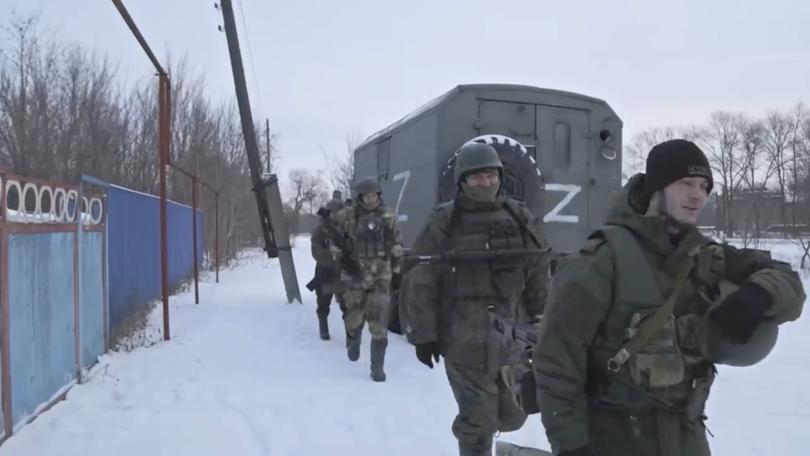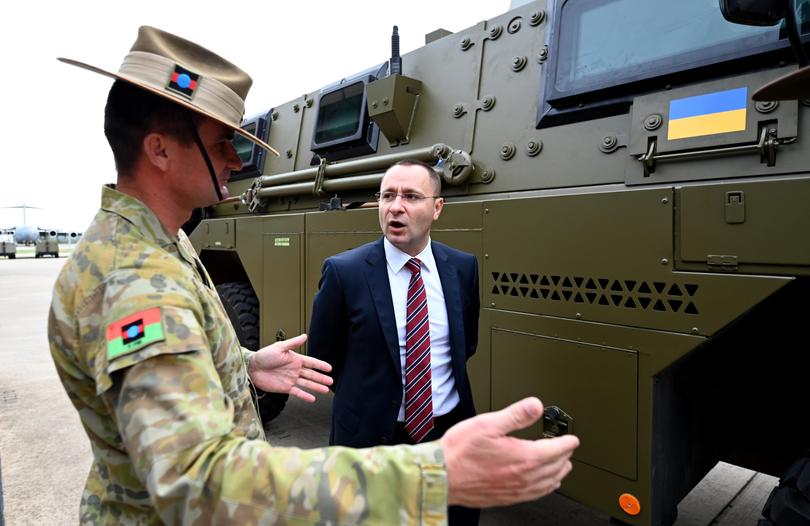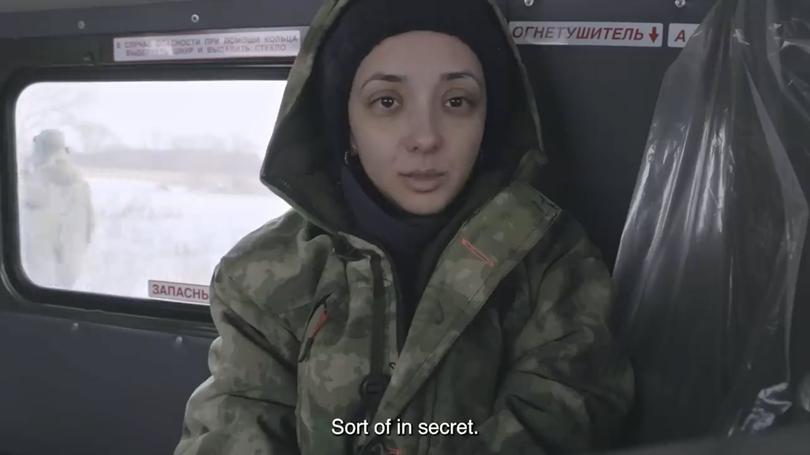‘Russians at War’ film controversy deepens as NSW Arts Minister snubs Ukraine ambassador’s meeting request
The NSW Arts Minister has brushed off a request from Ukraine’s Ambassador to Australia to discuss the planned screening of a Russian war film at a state-backed film festival.

Ukraine’s Ambassador to Australia Vasyl Myroshynchenko has asked to meet the NSW Government’s Arts Minister over the planned screening of a Russian war film at a state backed film festival.
The Antenna Documentary Film Festival is refusing the Ukrainian community’s plea to remove from this week’s festival agenda documentary, titled Russians at War, which they say is propaganda that humanises Russian military forces who are committing war crimes.
The documentary was filmed by Anastasia Trofimova, who worked for six years until 2020 for an arm of the Russian state media television channel Russia Today. She is under investigation by Ukraine for allegedly illegally entering the country to spread propaganda. Her documentary’s screening has been cancelled by film festival organisers in Greece and Zurich, Switzerland but played in Venice and other cities.
Sign up to The Nightly's newsletters.
Get the first look at the digital newspaper, curated daily stories and breaking headlines delivered to your inbox.
By continuing you agree to our Terms and Privacy Policy.Mr Myroshynchencko has written to NSW Arts Minister John Graham requesting a meeting to express his “strong concern” about the film’s scheduled screening in Sydney this week.
The NSW Government and Screen NSW are official partners of the Antenna Documentary Film Festival.
“While I understand that the Festival’s organisers have committed to somehow contextualising the film, its showing is inconsistent with both their own professed solidarity with the Ukrainian people and with the NSW Government’s ongoing, steadfast and public support of Ukraine’s fight for democracy (for which I am very grateful),” Mr Myroshynchenko wrote in his letter dated January 29 which was obtained exclusively by The Nightly.
“Perhaps, you would consider a public statement distancing the NSW Government from the showing of the film, if it were to proceed.”
But a spokesman said it was not a matter for the NSW Government.
“The NSW Government supports a diverse range of film festivals and events across the state but is not involved in programming decisions of independent organisations,” a spokesman for the NSW Government said.
Kirk Marcolina, chair of the festival and festival director Dudi Rokach issued a lengthy statement defending their selection of Russians at War.
“The decision to include Russians at War was not made lightly,” the pair said.
“By portraying the experiences and voices of Russian soldiers, the film sheds light on the internal contradictions, disillusionment, and sense of purposelessness within the ranks of the aggressor.

“We feel it serves as an existential critique of war, exposing the mechanisms that sustain it and ultimately underscoring the urgency of ending Russia’s invasion of Ukraine.
“In a broader sense, Antenna does not claim to be ‘neutral’ or ‘balanced,’ nor do we suggest that all perspectives are equally valid.
“Rather, we aim to be a platform unafraid to engage with layered and complex narratives.”
But Kateryna Kyrychenko, a Ukrainian refugee living in Sydney who is also a filmmaker from Bakhmut, where much of the documentary is set, urged the festival organisers to think again.
“The film was made with clear Kremlin support,” she said, noting that the director Anastasia Trofimova worked for Russia Today, Russia’s state-run television network.
“She spent seven months embedded with a Russian battalion in occupied Ukraine which would not have been possible without the explicit approval of the Russian Defence Ministry.”
The Nightly contacted Ms Trofimova for comment. Her website states that she gained “unprecedented access to follow a Russian Army battalion in Ukraine … without any official clearance or permits.”

Her consulting producer Sean Farnel told The Nightly she obtained access to the Russian battalion without the Russian MoD’s permission, a point also emphasised in a trailer for her documentary, in which she says she did not go with official access and embedded with Russian forces in secret.
“What she discovers is far from the narratives propagated by the East or West: a war cutting through family and historical ties, soldiers disillusioned and often struggling to understand what they are fighting for,” her website said.
But Ms Kyrychenko said the Russian soldiers depicted were not victims but paid mercenaries.
“Receiving three times the average Russian salary for taking part in an illegal invasion,” Ms Kyrychenko said.
“They are shown laughing, dancing and joking but there is no mention of the children and families they murdered.”
“This film is not an independent documentary — it is a carefully orchestrated piece of Russian propaganda, designed to manipulate emotions and obscure the reality of Russia’s war crimes in Ukraine,” she said.
She said it did not mention a single war crime committed by Russian forces, including the genocide in Bucha, the massacres in Irpin, bombings in Kharkiv or the destruction of Mariupol.
The Ukrainian community in Australia has launched an online petition calling for the screening to be scrapped. It had gathered almost 1000 signatures in 48 hours.

